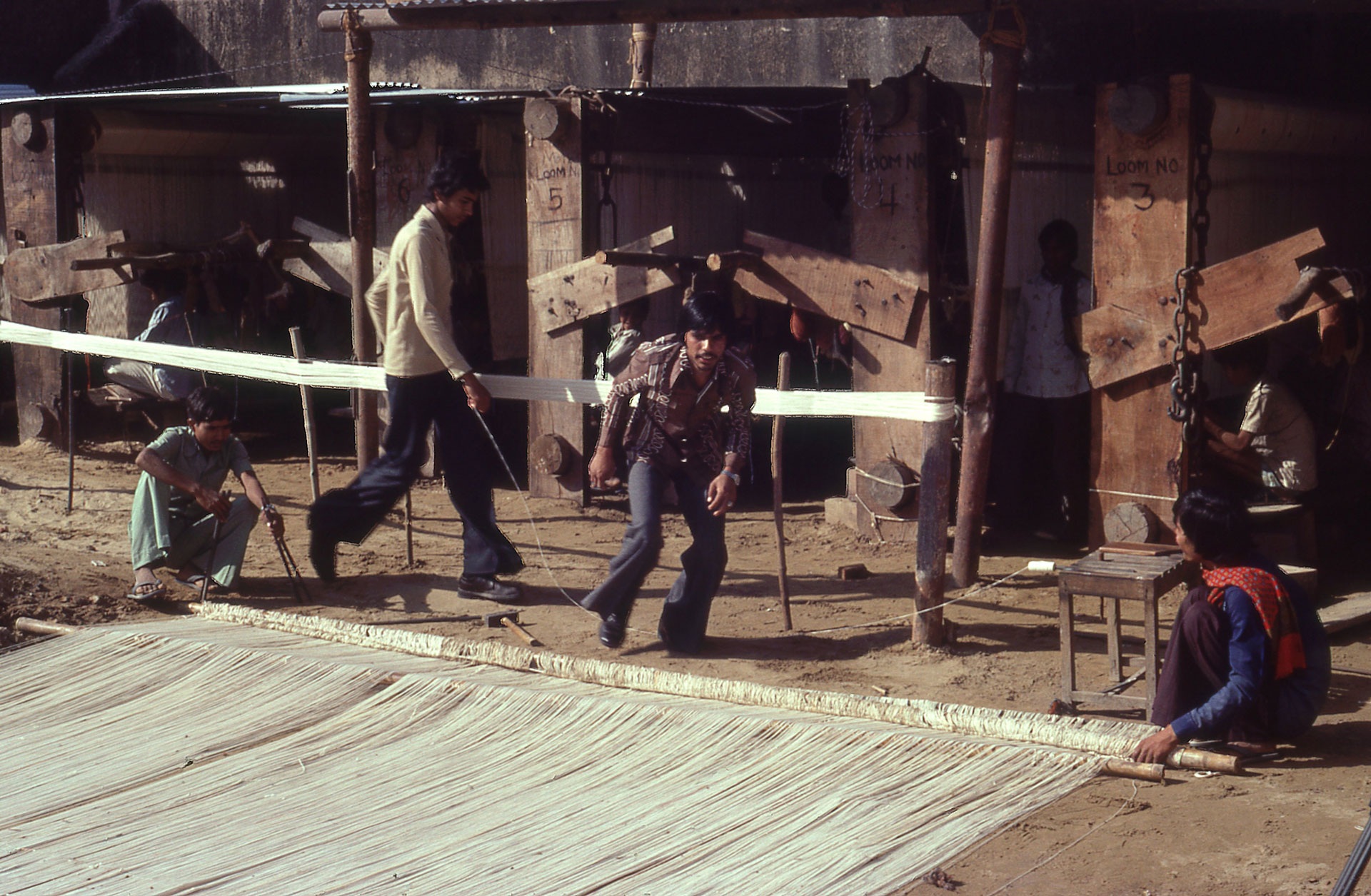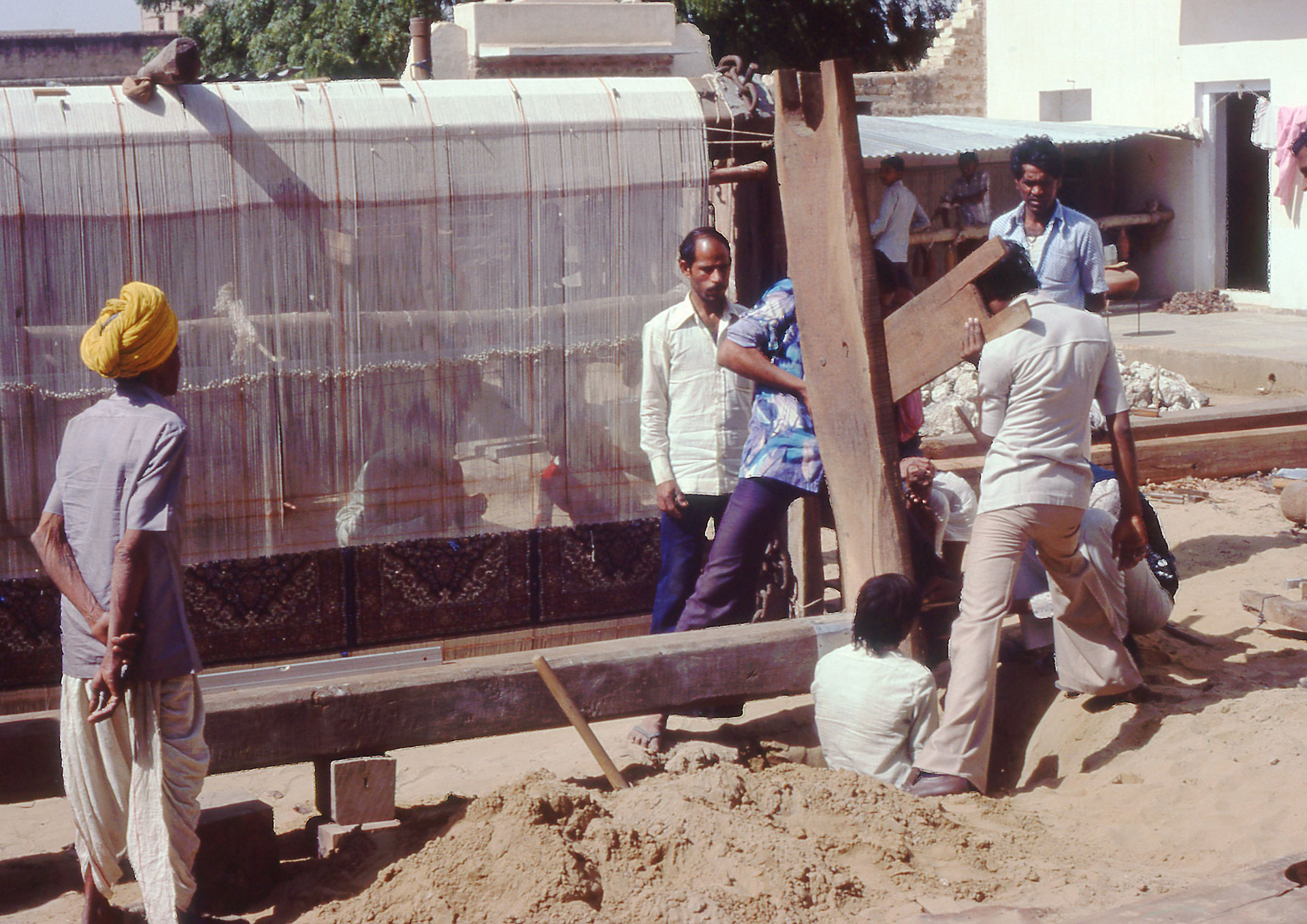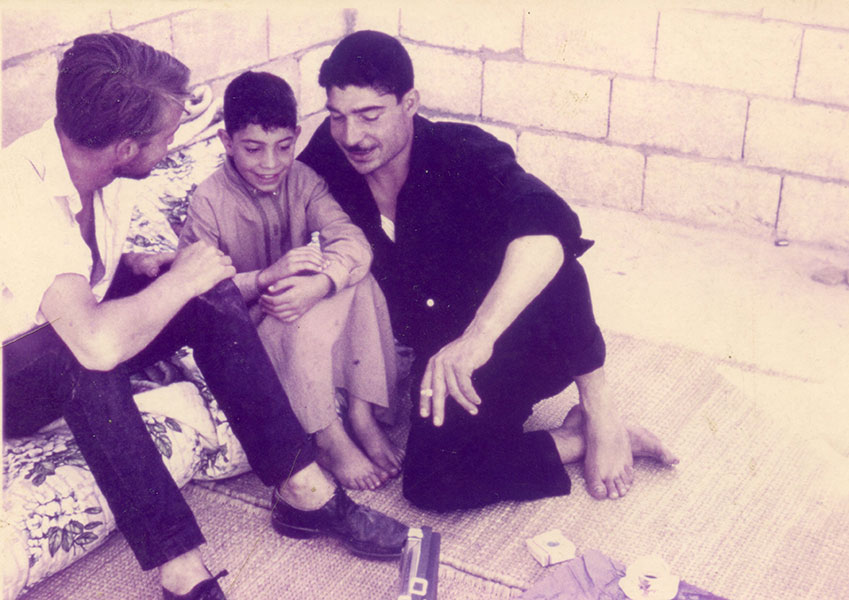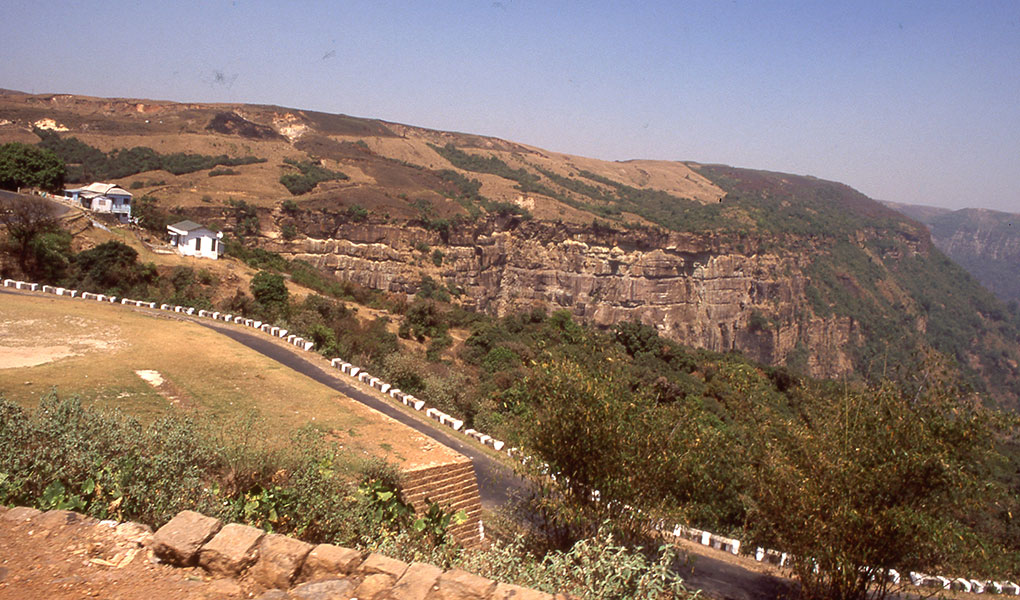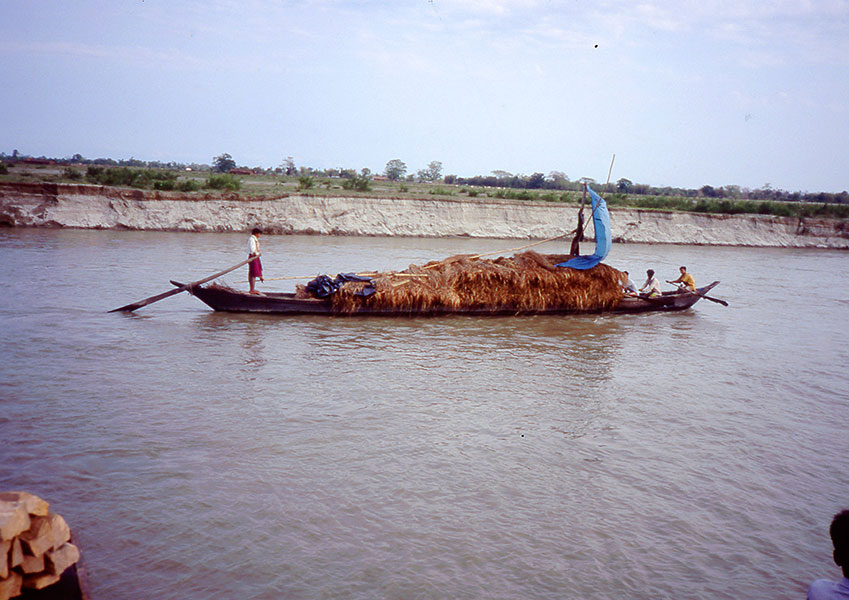9. NK Discovers Carpets – 2

8. NK Discovers Carpets – 1
June 4, 2020
10. In Search Of Eternal Snow
July 2, 2020N othing is plain sailing. 1980 opened with a series of ineffectual 'masters' to oversee the few looms. The first man was followed by one from Bigga, west of Churu, who soon gave way to Raschid. He took the role through May and June. One of the master's tasks was to oversee laying out the tani-bani, the cotton warp, which required some skill and a large, flat area. Before acquiring larger places for his units NK would use space within Churu's fort. Sometimes he, along with the two boy foremen, Iqbal and Prem, had to manage themselves. There was some small scale thieving, but that is almost the prerogative of employees in the face of real or imagined exploitation. One boy had an ingenious scam: his job was to wind wool into balls. He would put a ball of clay in the centre of each and steal the equivalent weight of wool! The drawback? As soon as one ball was unwound so was he! As the business grew the managers, who handled wages, tried to trim a little off each weaver's pay.
In September NK changed to another exporter. Then there was uncertainty about the new exporter, which was amicably settled. The only permanent solution was to become large enough to handle his own exports. We spent hours discussing the business. He saw that my interest was not commercial but in the workings of an unfamiliar craft. He attempted to persuade me to profit by importing carpets, but gradually realised I would be useless. My heart wasn't it it. At that point the carpets were aimed at a thriving German market. As a fellow western European, I had some idea of its tastes, could spot a clashing colour. Also, I was strongly anti-caste. People are the same; treat them well, with respect, and you'll reap the rewards.
Then came competition. Naturally, I learned NK's version of events; we all put a suitable complexion on history. Two other men established units in Churu, each with a couple of looms. Short of qualified weavers, by July they were poaching NK's boys with offers of better pay. Ayub and his brother defected, then Prem and Chetan. More followed. The problem was short-lived. By the beginning of October, with poor quality work, no carpets completed and staff problems, the rivals were failing. NK had an eye on their looms. At first they wouldn't negotiate but later they relented. Certainly, around that time he acquired three more looms. There was still bad feeling. At the end of the month there was trouble at the shop involving one of the competitors. Was it a real fight or was some glass smashed by accident? One of NK's boys, tough Yusuf, hero of the hour, became main witness. A court case was launched, but he defected as it approached. No doubt it was worth his while.
The business was gradually expanding. NK contacted independent weavers at nearby Bissau and Ramgarh, even a thekedar at distant Sandwa, in order to handle their work. He also persuaded a couple of reliable boys to set up looms at their homes and become thekedars. By the end of the year he was avoiding the shop and concentrating wholly on carpets. He started 1981 with fifty boys on the payroll and a total of 14 looms in Churu, mostly creating small rugs. A year later he had established units in Ramgarh and Ratangarh, 15km and 45km respectively from Churu. At Ratangarh he had ten looms and the weavers were mostly Muslims and Harijans, lowest in the Hindu society; girls were beginning to join up.
A trip to Gujarat, the coastal state south of Rajasthan, in late 1983 had an interesting result. I wanted to buy some embroideries in Kutch and, short of cash, turned to NK for a loan. He decided to come with me. On the way, we stopped in Jodhpur to check on thekedars he had enrolled there, but Gujarat proved an eye-opener. Then, having no sons but three daughters, NK was struck by the better position of women in Gujarati society. Moreover, he felt people were happier there. Kutch offered few prospects for carpet manufacture but he began to enquire about other parts of the state. The Rajasthani business community, known as Marwari elsewhere, is spread widely across India. He had Marwari contacts in Jhalod, in easternmost Gujarat. A month after we returned he went there and returned to Churu convinced Jhalod offered possibilities. That region was populated by a poor Bhil tribal community with high unemployment and the local officials seemed efficient. Plans to start work there were delayed by preparations for the marriage of his brother, Mahesh, then that of his sister in Churu. Once family matters were settled, they moved to Jhalod and set up business, starting to train weavers and establishing the first looms. He quickly grew to like the people, finding that, once trained, the weavers worked well and their attendance was better than in Rajasthan. The brothers continued to work together for some years before finally, inevitably dividing.
In late November, travelling from Diu to Delhi to seek out the Shekhawati Seminar, I visited Jhalod and saw the new unit. By then NK had fifty trainees and found himself in a very different rural environment, a pretty countryside, hilly, wooded with clear streams. The family had settled in happily and the Gujarati officials took less in bribes from the Bhil tribals than did their Rajasthani counterparts. The Churu staff who had come to train the new staff were also enjoying themselves. The Bhil community was much freer than that of Churu; one of the map-readers told me he had ten wives in Jhalod. Jaipur remained the source of dyed wool and looms and transport could be a problem. Later this would delay further expansion into another small town, Dohad, only a first step in NK's advance into Gujarat.

